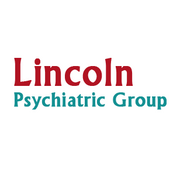
There are several subtypes of schizophrenia. That’s why a mental health professional won’t map out a treatment plan without assessing a person’s symptoms first. By knowing more about the different conditions, as outlined here, you can provide support to a loved one who has been diagnosed with schizophrenia.
What Are the Subtypes of Schizophrenia?
1. Paranoid
Although not everyone diagnosed with schizophrenia will experience paranoia, it’s a common symptom of the illness. Not being able to distinguish between reality and fantasy may impact how your loved one interacts with others.
Hallucinations and delusions are also associated with this subtype. Some people with delusions believe their thoughts and actions are controlled by someone or something else.
Others with the disorder might have an inflated sense of importance or feel like the target of persecution. Due to problems concentrating, speech can be disorganized.
2. Hebephrenic
 Chaotic behavior and jumbled speech are the main symptoms of hebephrenia. Because the condition makes it difficult for people to focus on one thought at a time, it can be hard for them to hold coherent conversations.
Chaotic behavior and jumbled speech are the main symptoms of hebephrenia. Because the condition makes it difficult for people to focus on one thought at a time, it can be hard for them to hold coherent conversations.
Your loved one might abruptly shift topics or give answers to unassociated questions. Repeating words and phrases and making up words are also common symptoms.
An inability to focus impairs how a person can perform daily tasks. Your loved one might respond inappropriately to situations or lack any emotional response.
3. Catatonic
People who have been diagnosed with this subtype exhibit abnormal physical responses. This could include unusual posture and rigid body movements that resemble seizures.
Your loved one might also lack spontaneous movement, to the point of unconsciousness, or repeat the same movements for no reason. They also might not respond when you speak to them.
If you’re concerned about your loved one’s health, bring them to Lincoln Psychiatric Group in Lincoln, NE, for an accurate diagnosis. Since 1939, this mental health facility has been providing medication and therapy to treat mood and psychological disorders, including schizophrenia. View new patient documents online or call (402) 476-7557 to schedule an appointment.
About the Business
Have a question? Ask the experts!
Send your question

